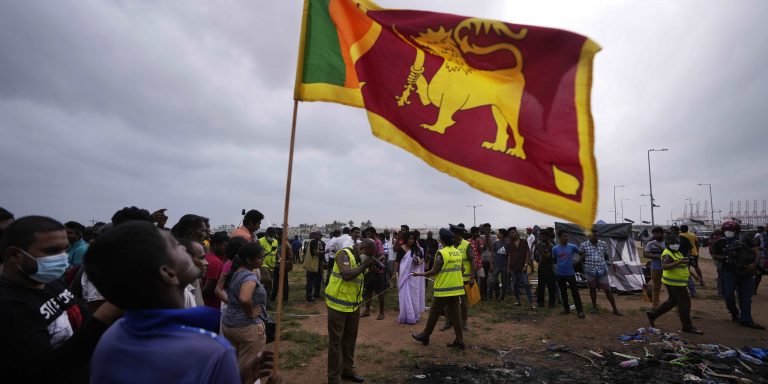INTELBRIEF
May 11, 2022
IntelBrief: Sri Lanka Protests Turn Violent

Bottom Line Up Front
- A severe economic crisis in Sri Lanka has led to weeks of protests and demonstrations, most of which remained peaceful until earlier this week when the country erupted in spasms of political violence.
- The population is lacking access to fuel, food, and medicine, while the price of basic goods has risen astronomically, and a lack of electricity has increased anger against the government.
- Images and videos of the violence soon spread on social media, further exacerbating an already tense situation.
- The military also reportedly ordered its troops to shoot looters and vandals on sight, suggesting that this episodic violence has the potential to escalate rapidly, pose severe human security risks, and become far more entrenched.
A severe economic crisis in Sri Lanka has led to weeks of protests and demonstrations, most of which remained peaceful until earlier this week. Prime Minister Mahinda Rajapaksa resigned while his brother, President Gotabaya Rajapaksa, was clinging to power and defying calls for his resignation. The Prime Minister’s resignation has not been enough to assuage protestors’ demands. The family’s ancestral home in Hambantota was set on fire, and early reports suggest that at least eight people were killed in the violence, including a member of Sri Lanka’s parliament, while hundreds were injured. The Rajapaksa brothers called for their supporters to offer a show of force in the country’s capital, Colombo, as hordes of pro-government mobs, many armed with makeshift weapons, wooden clubs, and metal bars, took to the streets and engaged in clashes with anti-government protesters. The European Union offered a statement condemning “the recent vicious attacks against peaceful protesters in Colombo.”
To date, protests have spanned the country’s diverse ethnic, religious, and social groups who are unhappy with Sri Lanka’s growing economic distress, due in part to high levels of corruption and major debts that the government is unable to pay back. China has financed several large-scale infrastructure projects, even as President Rajapaksa passed massive tax cuts, the largest in Sri Lanka’s history. Sinhalese Buddhists, the powerful majority in this island nation of 22 million people, joined with minority Muslims and Tamils to demand economic reforms. Sri Lanka’s foreign currency reserves have been depleted, and the population lacks access to fuel, food, and medicine. Globally, food prices have also been impacted by the ongoing war in Ukraine. The price of basic goods has risen astronomically, and a lack of electricity has further compounded the situation, forcing stores and shops to close, unable to run the necessary appliances such as refrigerators and air conditioners.
In response to the violence perpetrated by pro-government supporters, vigilantes erected checkpoints, detained and beat government loyalists, and destroyed properties and vehicles throughout the area. Images and videos of the violence soon spread on social media, further exacerbating an already tense situation. Facebook, WhatsApp, and other forms of social media and technology frequently serve as platforms for the spread of disinformation, instigating sectarian violence, and provoking incitement in the midst of outbreaks of political, ethnic, and religious violence in South Asia. The government implemented a curfew and deployed troops throughout the country to restore order. Where law enforcement clashed with protestors, the former fired shots as crowds attacked police officers.
Given the spasms of political violence convulsing the country, there are growing concerns that the military could attempt to take control. President Rajapaksa has already granted the police expanded powers under a formally declared state of emergency. The military also reportedly ordered its troops to shoot looters and vandals on sight, suggesting that this episodic violence has the potential to escalate rapidly and become far more entrenched. Sri Lanka was rocked by a devastating terrorist attack on Easter Sunday in April 2019, when several churches and luxury hotels were targeted by jihadist suicide bombers linked to National Tawheed Jamaat, a group which was widely supportive of the Islamic State. Historically, the ethno-nationalist terror group Liberation Tigers of Tamil Eelam (LTTE) waged a nearly three-decade insurgency against the Sri Lankan government before being defeated in 2009. Continued instability and the ongoing COVID-19 pandemic have plagued the country’s tourism industry, historically a valuable source of foreign exchange.